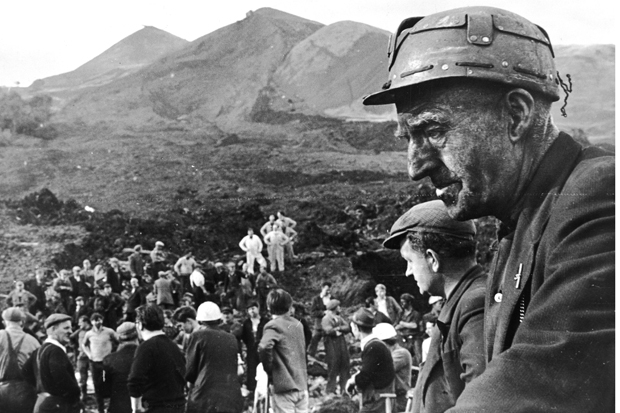‘I went in at seven and came out aged 22,’ said Brian as he looked back on the day in October 1966 when his primary school in Aberfan was smothered in a great black wave of coal slurry. On that day, of his small school of just 141 pupils, only 25 children survived. Brian lost his older sister; he escaped because he refused to get under the desk as the teacher instructed when they heard this extraordinary, unexplained, overwhelming noise, ‘like an aeroplane coming into land’, getting louder and louder. He later joined the Ynysowen Male Voice Choir, formed in Aberfan a couple of years after the disaster as the fathers, husbands and brothers of those who died began to realise that the only thing that was helping them get by day-to-day was singing.
Brian was talking to the Welsh singer Max Boyce, who began life as a miner in a neighbouring valley and on that day in 1966 tried to reach Aberfan to help with the rescue attempt only to find all roads into the village were gridlocked. In The Voices of Aberfan on Radio 2 (Wednesday; produced by Kelvin Brown) the men of the choir explained to Boyce how they discovered that singing was a better way of getting over what had happened than talking. ‘You concentrate on the song and it makes you feel happier,’ they told Boyce. ‘It’s a community thing.’ There’s also no better way of letting the emotion out. ‘You can pour it all out without people knowing…’
We heard lots of their singing in this sad but uplifting programme; singing that was so powerful in its unity, its subtle harmonies, and yet surprisingly soft-toned and vulnerable at the same time, the moods swiftly changing within each song, emotions rising and falling as the words, and the baton of their female conductor, dictated.








Comments
Join the debate for just £1 a month
Be part of the conversation with other Spectator readers by getting your first three months for £3.
UNLOCK ACCESS Just £1 a monthAlready a subscriber? Log in